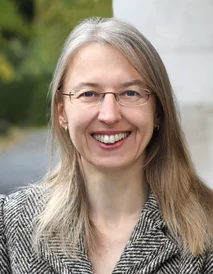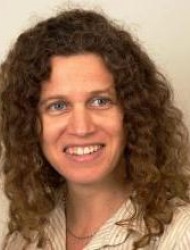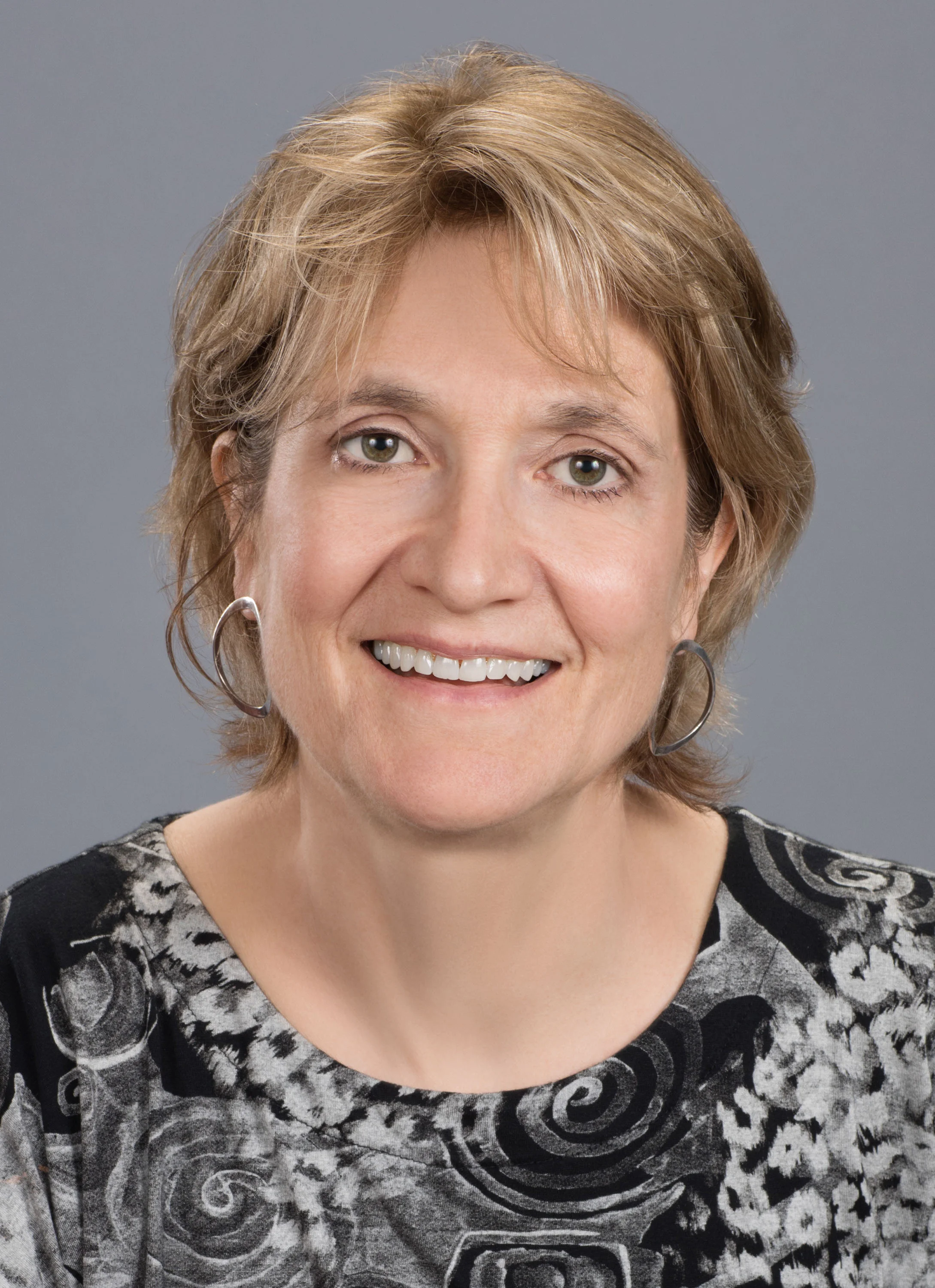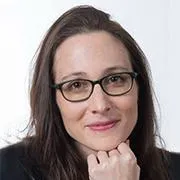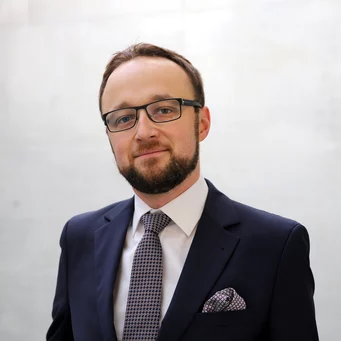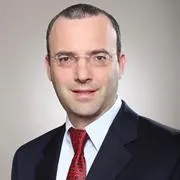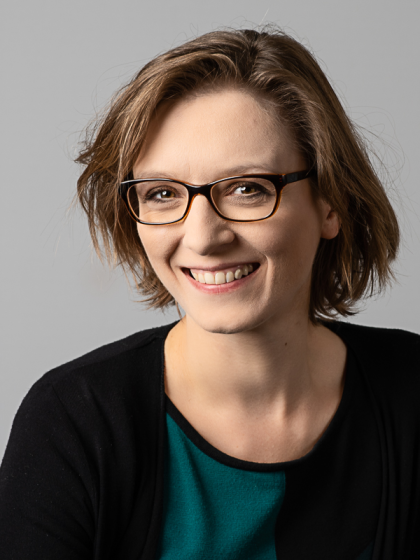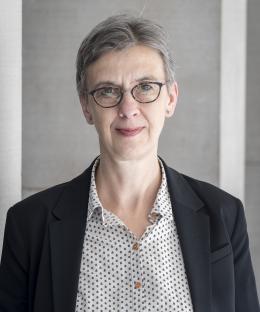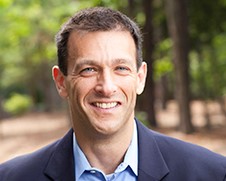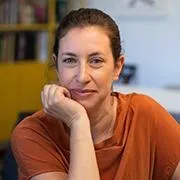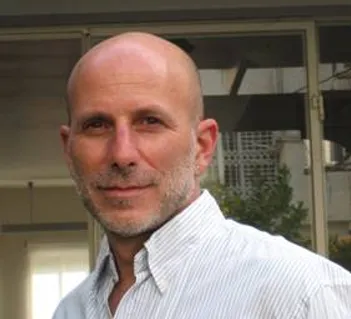Methodological Tensions in Understanding Markets
Academic Organizers and Presenters:
|
Marietta Auer |
Max Planck Institute for Legal History and Legal Theory Frankfurt |
|---|---|
|
|
Marietta Auer studied law, philosophy and sociology at the University of Munich and Harvard University. She completed both the first and second state legal examinations in 1995 and 1997, received her doctorate in law in 2003, her M.A. in philosophy and sociology in 2008, habilitated in 2012 and was granted the professorial teaching qualification for civil law, philosophy of law, commercial and corporate law, comparative law as well as European private law (all at the University of Munich). She received her LL.M. in 2000 and her S.J.D. in 2012 from Harvard University. In 2001 she received her license to practice as Attorney-at-Law in New York, USA. From 2013-2020, she held the chair for civil law and philosophy of law at the University of Giessen, and from 2016-2019, she served as dean of the law faculty. Since 2020, she is the director of the newly established Department for Multidisciplinary Theory of Law at the Max Planck Institute for Legal History and Legal Theory (formerly Max Planck Institute for European Legal History) (Frankfurt am Main) and is professor for private law as well as international and interdisciplinary foundations of law at the University of Giessen. She received offers for professorships at the Bucerius Law School in Hamburg (2019, declined) and from the University of Bonn (2019, declined). The department was established on 1 September 2020 and is currently in development. She has received numerous distinctions and awards, among them the University of Munich Law Faculty Award (2004), Juridical Book of the Year (2005, 2015), Teaching Excellence Award at Bavarian universities (2006), the Berlin-Brandenburg Academy of Sciences and Humanities Prize for Outstanding Research in the Area of the Foundations of Law and Economy (2017), and was a Fellow at the Berlin Institute for Advanced Study (2019-2020). In 2022, she was awarded the Gottfried Wilhelm Leibniz Prize of the German Research Foundation (DFG). Memberships in professional associations and advisory boards as well as evaluation activities, including the expanded Board of the Association of Lecturers in Private Law (Zivilrechtslehrervereinigung e.V.), the Board of Trustees of the Bucerius Law School, the Research Council of the European University Institute, Florence as well as in the Senate and Grants Committees on Research Training Groups for the German Research Foundation. |
|
Hanoch Dagan |
The Buchmann Faculty of Law, Tel Aviv University |
|---|---|
|
|
Hanoch Dagan is the Stewart and Judy Colton Professor of Legal Theory and Innovation and the Director of the Edmond J. Safra Center for Ethics at Tel-Aviv University. Professor Dagan is a former Dean of Tel Aviv University Faculty of Law and also served as the founding director of the Zvi Meitar Center for Advanced Legal Studies, the director of The Cegla Center for Interdisciplinary Research of the Law, and the Editor in Chief of Theoretical Inquiries in Law. Among his many publications are over 90 articles in major law reviews and journals, such as Yale Law Journal, Columbia Law Review, New York University Law Review and more. Professor Dagan has also written seven books, including Property: Values and Institutions (Oxford University Press, 2011), Reconstructing American Legal Realism & Rethinking Private Law Theory (Oxford University Press, 2013), and The Choice Theory of Contracts (with Michael A. Heller) (Cambridge University Press, 2017). His new book – A Liberal Theory of Property – is forthcoming this year with Cambridge University Press. Professor Dagan has been a visiting professor at Yale, Columbia, Michigan, Cornell, UCLA, and Toronto. Dagan delivered keynote speeches and endowed lectures at Singapore, Alabama, Toronto, Queensland, Cape Town, Monash (Melbourne), and Oxford. He is a member of the American Law Institute and the International Academy of Comparative Law. Dagan obtained his LL.M. and J.S.D. from Yale Law School after receiving his LL.B., summa cum laude, from Tel Aviv University. |
|
Roy Kreitner |
The Buchmann Faculty of Law, Tel Aviv University |
|---|---|
|
|
Roy Kreitner teaches courses on private law, legal history, and law and political thought at the law school, where he has been on the faculty since 2001. He received an S.J.D. from Harvard Law School, an LL.B. and an M.A. (Comparative Literature & Semiotics) from Tel-Aviv University, and an A.B. from Brown University. He has been a Visiting Professor at the University of Virginia and at the University of Toronto. He is the author of Calculating Promises: The Emergence of Modern American Contract Doctrine (Stanford University Press, 2007). During 2009-2010 he was a fellow at The Radcliffe Institute for Advanced Study at Harvard University and an American Council of Learned Societies Fellow. In 2010-2011 he was a visiting researcher at the Institute for Global Law and Policy at Harvard Law School. |
|
Ralf Michaels |
Max Planck Institute for Comparative and International Private Law Hamburg |
|---|---|
|
|
Ralf Michaels has been a Director at the Institute since 2019. After studying law in Passau and Cambridge, which concluded with his sitting for the first state exam in law in 1994, Ralf Michaels was a senior research assistant under Prof. Klaus Schurig (Chair for Private Law, Private International Law and Comparative Law) at the University of Passau. In 1995 he was awarded a Master of Laws (LL.M.) at Cambridge University (King’s College). Ralf Michaels first came to the Institute in 1997, where he served as an academic staff member until 1999 under Prof. Jan Kropholler. Conferral of his doctoral degree and completion of the second state exam in law followed in 2000. In 2001 he returned to the Institute as a research fellow before then relocating to Duke University School of Law for the next 17 years: he served until 2007 as Assistant Professor, subsequently as Professor and from 2012 until 2019 as Arthur Larson Professor of Law. Ralf Michaels was Guest Professor at the Universities of Panthéon/Assas (Paris II), Princeton, Pennsylvania, Toronto, Tel Aviv and the London School of Economics; he was also Senior Fellow at Harvard Law School, Princeton University (Program in Law and Public Affairs) and the American Academy in Berlin. He is a titular member of the Académie internationale de droit comparé and a member of, among other entities, the American Law Institute, the Gesellschaft für Rechtsvergleichung (German Society for Comparative Law), the Deutschen Gesellschaft für Internationales Recht (German Society for International Law) and the Zivilrechtslehrervereinigung (Association of Professors in Private Law). |
Participants:
|
Arie Arnon |
Department of Economics Ben-Gurion University of the Negev |
|---|---|
|
|
Arie Arnon, Professor Emeritus, the Department of Economics at Ben Gurion University and the Israeli coordinator of the Aix Group. The Aix Group is a unique think tank that focuses on the economic aspects of the Israeli-Palestinian conflict. The Group started its work in 2002 and is comprised of a network of Israeli, Palestinian and international economists, policymakers, members of economic organizations, and individuals from the academic and business spheres. Arnon's academic work focuses on macro-economics, monetary theory and policy, economic aspects of the Israeli-Palestinian conflict, and the history of economic thought. Among his publications is a book "The Palestinian Economy: Between Imposed Integration and Voluntary Separation" (written with I. Luski, A. Spivak, and J. Weinblatt in 1997 published by E.J. Brill, Leiden (Holland); "Monetary Theory and Policy from Hume and Smith to Wicksell: Money, Credit and the Economy, published in 2011 by Cambridge University Press received the Best Book Award 2012 of ESHET - European Society for the History of Economic Thought. A recent book, Debates in Macroeconomics from the Great Depression to the Long Recession: Cycles, Crises and Policy Responses, was published in 2022 by Springer-Verlag. Dr. Arnon has been a Visiting Faculty and Visiting Scholar at Stanford University, the University of California Berkeley, SOAS (London) the University of Pennsylvania and Harvard University. He has worked as a Senior Economist in the research department of the Bank of Israel and as a consultant to the World Bank and was founder and former head of the “Program on Economics and Society” at the Van Leer Jerusalem Institute. |
|
Oren Bar-Gill |
Harvard Law School |
|---|---|
|
|
Oren Bar-Gill’s scholarship focuses on the law and economics of contracts and contracting. His publications include: SEDUCTION BY CONTRACT: LAW, ECONOMICS AND PSYCHOLOGY IN CONSUMER MARKETS (Oxford University Press, 2012); Rethinking Nudge: An Information-Costs Theory of Default Rules (with Omri Ben-Shahar), which appeared in the University of Chicago Law Review (2021); Disclosure Rules in Contract Law (with Ariel Porat), which appeared in the Journal of Legal Studies (2020); Algortihmic Price Discrimination: When Demand Is a Function of Both Preferences and (Mis)perceptions, which appeared in the University of Chicago Law Review (2019); “Exchange Efficiency with Weak Ownership Rights” (with Nicola Persico), which was published in the American Economic Journal: Microeconomics (2016); “Product Use Information and the Limits of Voluntary Disclosure” (with Oliver Board), which appeared in the American Law and Economics Review (2012); “Consent and Exchange” (with Lucian Bebchuk), which appeared in the Journal of Legal Studies (2010); “The Law, Economics, and Psychology of Subprime Mortgage Contracts,” which appeared in the Cornell Law Review (2009); “The Prisoners’ (Plea Bargain) Dilemma” (with Omri Ben-Shahar), which appeared in the Journal of Legal Analysis (2009); “Making Credit Safer” (with Elizabeth Warren), which appeared in the University of Pennsylvania Law Review (2008); “Bundling and Consumer Misperception,” which appeared in the University of Chicago Law Review (2006); “Credible Coercion” (with Omri Ben-Shahar), which appeared in the Texas Law Review (2005); “Seduction by Plastic,” which appeared in the Northwestern University Law Review (2004); and “The Law of Duress and the Economics of Credible Threats” (with Omri Ben-Shahar), which appeared in the Journal of Legal Studies (2004). Bar-Gill joined Harvard Law School in July 2014 from New York University School of Law, where he was the Evelyn and Harold Meltzer Professor of Law and Economics. Bar-Gill holds a B.A. (economics), LL.B., M.A. (law & economics) and Ph.D. (economics) from Tel-Aviv University, as well as an LL.M. and S.J.D. from Harvard Law School. Bar-Gill is the recipient of the American Law Institute’s Young Scholars Medal (in 2011), and of the American Law and Economics Review’s Best Paper Prize (2017). He serves (together with Omri Ben-Shahar and Florencia Marotta-Wurgler) as Reporter for the Restatement of the Law, Consumer Contracts. Bar-Gill serves as Editor-in-Chief of the Journal of Legal Analysis. |
|
Shiri Cohen Kaminitz |
Department of Political Science and PPE Program at the Hebrew University of Jerusalem |
|---|---|
|
|
Shiri Cohen Kaminitz graduated from the Hebrew University, PPE program. Her Master’s and PhD dissertations were in the fields History and Philosophy of Sciences, earned respectively at the Hebrew University and Bar-Ilan University. Her Post-Doctorate studies were conducted in the center for the History of Political Economy at Duke University, and in the Economics Department at Ben-Gurion University of the Negev. Her research interests include Economic and Political thought, focusing on the evolution of Utilitarianism and its changing linkages to politics and economics. |
|
Christine Desan |
Harvard Law School |
|---|---|
|
|
Christine Desan teaches about the political economy of capitalism, the constitutional law of money, the international monetary system, constitutional history, and legal theory. Her research explores money as a legal and political project, one that configures the market it sets out to measure. In Making Money: Coin, Currency, and the Coming of Capitalism (Oxford University Press, 2014), she argues that a radical change in money’s design introduced modern capitalism: the government delegated money creation to private investors. That change institutionalized the profit motive as the engine of the political economy and privileged credit allocation by banks, which distribute the money supply as they expand it. She explores the ramifications of those shifts in subsequent publications, including “How to Spend a Trillion Dollars: Our Monetary Hardwiring, Why It Matters, and What We Should Do About It,” “Money’s Design Elements: Debt, Liquidity, and the Pledge of Value from Medieval Coin to Modern “Repo”,” Banking & Fin. L. Rev. 38 (forthcoming 2022), “The Key to Value: The Debate over Commensurability in Neoclassical and Credit Approaches to Money,” 83 Law and Contemporary Problems (2020); and “The Constitutional Approach to Money: Monetary Design and the Production of the Modern World,” in Money Talks: Essays in Honor of Viviana Zelizer, Bandelj and Wherry, eds., (Princeton: Princeton University Press, 2017). Desan is the founder and managing editor of JustMoney.org, a website that explores money as a critical site of governance. She also co-founded Harvard’s Program on the Study of Capitalism, an interdisciplinary project designed to bring together classes, resources, research funds, and advising aimed at exploring that topic. With its co-director, Prof. Sven Beckert (History), she taught the Program’s anchoring research seminar, the Workshop on the Political Economy of Modern Capitalism, from 2005 to 2015. Desan is on the Steering Committee of the Massachusetts Public Banking and co-authored legislation that would establish a state bank designed to reach borrowers in marginalized communities, cities and towns, enterprises aimed at climate change, and other underserved ends. Desan was a fellow at the Radcliffe Institute for Advanced Study during the 2015-2016 academic year and at the Massachusetts Historical Society in the fall of 2016. She is on the Board of the Institute for Global Law and Policy, is a faculty member of the Program on American Studies at Harvard University, and has served on the editorial board for the Law and History Review and as an advisory editor of Eighteenth Century Studies. In Brookline, MA, Desan served for 10 years on a town committee that researched and drafted legislation promoting campaign finance reform, and that supervised that reform once it was enacted. |
|
Talia Fisher |
The Buchmann Faculty of Law, Tel Aviv University |
|---|---|
|
|
Talia Fisher is the Anny and Paul Yanowicz Professor of Human Rights, and the former Vice Dean for Research at the Tel Aviv University Faculty of Law. Since joining the Faculty in 2004 she has written on Evidence Law Theory, private supply of legal institutions, empirical analysis of law, and probabilistic applications in procedural law. Fisher has been a visiting professor at the University of Toronto (2009, 2017), a fellow at the Edmond J. Safra center for Ethics at Harvard University (2013), and a visiting scholar at Harvard Law School (2003, 2010, 2013). She holds an LL.B., LL.M. and Ph.D. in law from the Hebrew University). Fisher was awarded the Shneur Zalman Cheshin Award for Academic Excellence in Law (2012) as well as the Zeltner Prize for Young Legal Scholars (2009) and the Fattal Prize for excellence in legal research (2018). She was a member of the Young Academy of Sciences and Humanities since its establishment and until 2017, as well as a member of the international Global Young Academy (GYA). She is currently a member of the academic board of the Israeli Institute for Advanced Studies. |
|
Rachel Friedman |
The Buchmann Faculty of Law, Tel Aviv University |
|---|---|
|
|
Rachel Z. Friedman is an assistant professor at the Buchmann Faculty of Law. A lawyer and political theorist by training, she earned her B.A (Social Studies), her J.D., and her Ph.D. (Political Science), all from Harvard University. Following the completion of her graduate studies, Rachel was awarded post-doctoral fellowships from the Fulbright program and the Safra Center for Ethics at Tel Aviv University. Her research and teaching interests include the history of political and economic thought; theories of distributive justice; comparative welfare law and policy; and the political and ethical philosophy of Aristotle. She is the author of a book, Probable Justice: Risk, Insurance, and the Welfare State (University of Chicago Press, 2020), as well as articles on social insurance, Aristotle’s account of friendship, and (with Y. Margalioth) the institution of free-loan societies among Haredi Jews in Israel. |
|
David Singh Grewal |
Berkeley School of Law |
|---|---|
|
|
David Singh Grewal is Professor of Law at UC Berkeley School of Law and faculty in its Jurisprudence and Social Policy Program. He was earlier a Professor of Law at Yale Law School and a Junior Fellow at the Harvard Society of Fellows. His teaching and research interests include legal and political theory; intellectual history, particularly the history of economic thought; global economic governance and international trade law; intellectual property law and biotechnology; and law and economics. His first book, Network Power: The Social Dynamics of Globalization, was published by Yale University Press in 2008. His second book, The Invention of the Economy, is forthcoming from Harvard University Press. He has published on legal topics in the Harvard Law Review, the Yale Law Journal, and several other law reviews, and on a variety of questions in political theory and intellectual history in several peer-reviewed journals. His public writing has appeared in the New York Times, the Los Angeles Times, the Huffington Post, and elsewhere. He is a member of the Board of Directors of the BioBricks Foundation and a co-founder of the Law and Political Economy(opens in a new tab) blog. He holds B.A. (Economics) and Ph.D. (Political Science) degrees from Harvard and a J.D. from Yale Law School. |
|
Mateusz Grochowski |
Max Planck Institute for Comparative and International Private Law Hamburg |
|---|---|
|
|
Mateusz Grochowski obtained his Ph.D. cum laude at the Institute of Law Studies of the Polish Academy of Sciences (supervised by Prof. Dr. Dr. h.c. mult. Ewa Łętowska), receiving the prize for the best Polish dissertation in private law. He holds a title of Master of Laws (LL.M.) from the Yale Law School. He is an Affiliated Fellow at the Information Society Project (Yale Law School) and was an Emile Noël Fellow at New York University School of Law. Prior to joining the Max Planck Institute, he was an Edmond J. Safra Fellow at the Buchmann Faculty of Law, Tel Aviv University and a Max Weber Fellow at the European University Institute. He has been also appointed as a Member of the Office of Studies and Analyses of the Supreme Court of Poland. He received several scholarships and awards, including the Fox International Fellowship (Yale) and a scholarship for outstanding legal researchers from the Foundation for Polish Science. He was a teacher and a guest lecturer in various academic institutions, including Fordham University School of Law, University of Münster, University of Trento, European University Institute, University of Wrocław and the College of Europe. He participated as a principal researcher in several research projects, funded inter alia by the Polish National Science Centre, the National Agency for Academic Exchange and the European Commission. He has been also a Member of the Research Group on the Law of Digital Services of the European Law Institute and an editor at the "Journal of European Consumer and Market Law" (EuCML) as well as at the "Rabels Zeitschrift für ausländisches und internationales Privatrecht" (RabelsZ). |
|
Sharon Hannes |
The Buchmann Faculty of Law, Tel Aviv University |
|---|---|
|
|
Sharon Hannes is a Professor of Law and the previous Dean of the Faculty (2017-2022). He also previously served as the Academic Director of the Cegla Center for Interdisciplinary Research of the Law (the largest legal research center in Israel) and was also the Editor in Chief of the journal Theoretical Inquiries in Law. During the years 2004-2014 he was the Academic Director of the Tel-Aviv - Berkeley Executive LL.M. Program in Commercial Law, a joint program of Tel-Aviv University and U.C. Berkeley. Professor Hannes received his S.J.D. in Corporate and Financial Law from Harvard Law School, where he was the recipient of the Byse Fellowship (2001). He completed his LL.M. in Corporate Law at NYU School of Law, where he was a Hauser Global Scholar. Prof. Hannes is a TAU alumnus. In 1997 he received his LLB degree in Law and a BA degree in Accounting. Professor Hannes was a Visiting Professor in the Fall of 2003, and during 2008-2009 at Northwestern University School of Law, during the Fall of 2011 and 2016 at Columbia Law School, and during the fall of 2014 at Georgetown. |
|
Ron Harris |
The Buchmann Faculty of Law, Tel Aviv University |
|---|---|
|
|
Ron Harris is the Kalman Lubowsky Professor of Law and History, and former Dean, at the Faculty of Law in Tel-Aviv University. His main research field is the history of the business corporation. He studies the business corporation in Britain and comparatively, and in the wider context of legal and economic history, the history of industrialization, capitalism, colonialism and globalization. He also works on the history of other forms of business organization (partnerships, commenda, etc.) and of other legal-economic institutions (contracts, property rights, etc.). His additional research interests include the methodology of legal-economic history, the history and policy of bankruptcy and consumer credit, and Israeli legal history. He earned an LL.B., and B.A. and M.A. in history from TAU and a Ph.D. in history from Columbia University. Harris was a Fellow at the Institute for Advanced Study in the Behavioral Sciences at Stanford University (2017-18). He was a visiting professor at UC Berkeley, USC, Cornell University, École Normale Supérieure in Paris, London School of Economics, HEC Business School in Paris and NALSAR Hyderabad and spent extended research periods as a visiting fellow in Oxford. Harris is a co-founder of the Israeli Legal History Association and the President of the Economic History Association of Israel. Harris is the author of three books: Going the Distance: Eurasian Trade and the Rise of the Business Corporation, 1400-1700 (2020); Industrializing English Law: Entrepreneurship and Business Organization, 1720 – 1844 (2000); Israeli Law: The Formative Years 1948-1977 (2014). He is the editor of two other books and the author or co-author of numerous articles in economics, business, history and law journals. He is currently working on a book project on the comparative history of private companies in France, Germany, Britain, and the US (with Naomi Lamoreaux, Timothy Guinnane and Jean-Laurent Rosenthal) and on a book project on the expansion of company law from Britain to its global Empire between 1815-1914. |
|
Lisa Herzog |
Faculty of Philosophy, the University of Groningen |
|---|---|
|
|
Lisa Herzog works at the intersection of political philosophy and economic thought. She works at the Faculty of Philosophy of the University of Groningen since 2019; since 2021 she is the Directer of the Center for Philosophy, Politics and Economics. She holds a master (Diplom) in economics from LMU Munich, and an M.St. in Philosophy and D.Phil. in Political Theory from the University of Oxford, where she was a Rhodes Scholar. She has worked at, or visited, the universities of St. Gallen (CH), Leuven (BE), Frankfurt/Main (D), Utrecht (NL), and Stanford (US), and has held fellowships of Wissenschaftskolleg zu Berlin and Hamburg Institute for Advanced Study. Between 2017 and 2022 she was a member of the Global Young Academy, where she lead the SCISO project; she is currently a member of De Jonge Academy and Young Academy Groningen. Herzog has published on the philosophical dimensions of markets (both historical and systemical), liberalism and social justice, ethics in organizations and the future of work. The current focus of her work are workplace democracy, professional ethics, and the role of knowledge in democracies. She is a co-editor of the interdisciplinary journal Review of Social Economy. Her forthcoming monograph is entitled Citizen Knowledge. Markets, Experts, and the Infrastructure of Democracy. |
|
Katharina Pistor |
Columbia Law School |
|---|---|
|
|
Katharina Pistor is a leading scholar and writer on corporate governance, money and finance, property rights, and comparative law and legal institutions. Pistor is the author or co-author of nine books. Her most recent book, The Code of Capital: How the Law Creates Wealth and Inequality, examines how assets such as land, private debt, business organizations, or knowledge are transformed into capital through contract law, property rights, collateral law, and trust, corporate, and bankruptcy law. The Code of Capital was named one of the best books of 2019 by the Financial Times and Business Insider. Pistor publishes widely in legal and social science journals. In her essay “From Territorial to Monetary Sovereignty” in the Journal on Theoretical Inquiries in Law (2017), she argued that the rise of a global money system means a new definition of sovereignty: the control of money. She has served on the editorial boards of the American Journal of Comparative Law, Columbia Journal of European Law, European Business Organization Law Review, and Journal of Institutional Economics. Pistor is a prominent commentator on cryptocurrency and has testified before Congress on the lack of regulatory oversight of proposed international cryptocurrencies. As the director of the Center on Global Legal Transformation, Pistor directs the center’s work to develop research projects and organize conferences to examine ways in which law shapes global relations and how they, in turn, transform the law. Before joining Columbia Law School in 2001, Pistor held teaching and research positions at Harvard Law School, the Harvard Kennedy School and the Max Planck Institute for Foreign and International Law in Hamburg. She has been a visiting professor at the University of Pennsylvania Law School, New York University Law School, Frankfurt University, London School of Economics, and Oxford University. She is a research associate with the Centre for Economic Policy Research, and she has served as principal investigator of the Global Finance and Law Initiative (2011–2013). Pistor was a member of the board of directors (2011–2014) and a fellow (2019) of the European Corporate Governance Institute. In 2015, she was elected a member of the Berlin-Brandenburg Academy of Sciences and Humanities, and in 2021, she was elected a member of the European Academy of Sciences. In 2012 she was co-recipient (with Martin Hellwig) of the Max Planck Research Award on international financial regulation, and in 2014 she received the Allen & Overy Prize for best working paper on law of the European Corporation Governance Institute. She is also the recipient of research grants by the Institute for New Economic Thinking and the National Science Foundation. |
| Barak Richman |
Duke Law |
|---|---|
|
|
Barak Richman’s primary research interests include the economics of contracting, new institutional economics, antitrust, and healthcare policy. His work has been published in the Columbia Law Review, the University of Pennsylvania Law Review, Law and Social Inquiry, the New England Journal of Medicine, the Journal of the American Medical Association, and Health Affairs. In 2006, he co-edited with Clark Havighurst a symposium volume of Law and Contemporary Problems entitled "Who Pays? Who Benefits? Distributional Issues in Health Care,” and his book Stateless Commerce was published by Harvard University Press in 2017. Richman represented the NFL Coaches Association in an amicus curiae brief in American Needle v. The Nat’l Football League, which was argued before the U.S. Supreme Court in January 2010 and again in Brady v. The Nat’l Football League in 2011. His recent work challenging illegal practices by Rabbinical Associations was featured in the New York Times. And in 2020, he was a member of the Working Group on Platform Scale at Stanford University’s Program on Democracy and the Internet that proposed middleware as a solution to stem the economic and political power of dominant internet platforms. Richman also is on the Health Sector Management faculty at Duke’s Fuqua School of Business and is a Senior Fellow at the Kenan Institute for Ethics. He won Duke Law School's Blueprint Award in 2005 and was named Teacher of the Year in 2010. He has had visiting appointments at Columbia, Harvard, and Stanford. Richman has an A.B., magna cum laude, from Brown University, a J.D., magna cum laude, from Harvard Law School, and a PhD from the University of California, Berkeley, where he studied under Nobel Laureate in Economics Oliver Williamson. He served as a law clerk to Judge Bruce M. Selya of the United States Court of Appeals for the First Circuit, and from 1994-1996 he handled international trade legislation as a staff member of the United States Senate Committee on Finance, then chaired by Senator Daniel Patrick Moynihan. |
| David Schorr |
The Buchmann Faculty of Law, Tel Aviv University |
|---|---|
|
|
David Schorr's research interests include environmental and natural-resource law, legal history, and environmental history, and his work has won the support of multiple fellowships and grants, including from the Israel Science Foundation and the US National Endowment for the Humanities. He is a co-founder and co-director of the Israel Environmental History Forum, and currently heads TAU's Law and Humanities Program.
|
| Hila Shamir |
The Buchmann Faculty of Law, Tel Aviv University |
|---|---|
|
|
Hila Shamir is a Professor of Law at Tel-Aviv University Faculty of Law. She earned a S.J.D. and LL.M. from Harvard Law School and a LL.B. from Tel-Aviv University. Shamir teaches and researches in the fields of Employment, Labor, Immigration, and Welfare Law with a focus on issues of human trafficking, gender equality, informal work, and the law of global value chains. Shamir has taught at Toronto Faculty of Law, Georgetown Law School, UC Berkeley, Cornell Law School, and at the Harvard University Department of Government, and was a distinguished visiting scholar at the Institute for Jewish Law and Israel Studies at UC Berkeley (2014-16). Shamir served as Associate Dean of Academic and student Affairs at TAU Law (2017-18). She received an European Research Council (ERC) grant to pursue research on a Labor Approach to Human Trafficking (TraffLab, 2018-2023), seeking to shift anti-trafficking policy, research and discourse, away from the predominant criminal law, border control, and human rights model, and towards a labor based approach to human trafficking that will be primarily focused on the bargaining power disparities that create vulnerability to trafficking. Her research was nominated as a finalist for the ERC Public Engagement with Research Award 2022. Shamir is also the recipient of the Fattal Prize for excellence in legal research (2022), the Cheshin Prize for Academic Excellence in Law for Young Scholar (2018), the Zeltner Prize for Excellence in Research for Junior Legal Scholars (2014). She also recevied several grants including a EU Marie Curie Reintegration Grant, the Alon Scholarship for outstanding junior faculty, and research grants from the Israeli Science Foundation and the Israeli Ministry of Science and Technology, and a Fulbright fellowship. Shamir was a member of the Israeli Young Academy (2018-2022). Prior to her graduate studies Shamir served as a law clerk to Justice E. Mazza of the Israeli Supreme Court. Her recent publications include an edited volume on Bilateral Labor Agreements (Theoretical Inquiries in Law vol 22(2)), and the books Governance Feminism: An Introduction (2018, Minnesota U. Press) and Governance Feminism: Notes from the Field (2019, Minnesota U. Press), the first co-authored and the second co-edited with Janet Halley, Prabha Kotiswaran and Rachel Rebouche. She is currently working on a forthcoming edited volume, to be published with Cambridge University Press, on “Modern Slavery and Global Value Chains” (Forthcoming 2023). |
| Michael Zakim |
Department of History, Tel Aviv University |
|---|---|
|
|
Michael Zakim writes and teaches about the material and cultural history of modernity in America. This includes the history of the economy (including labor history), political theory, the sociology of knowledge, statistics, accounting, machinery, fashion, the invention of photography, gender and the body, and the birth of the private self. |


